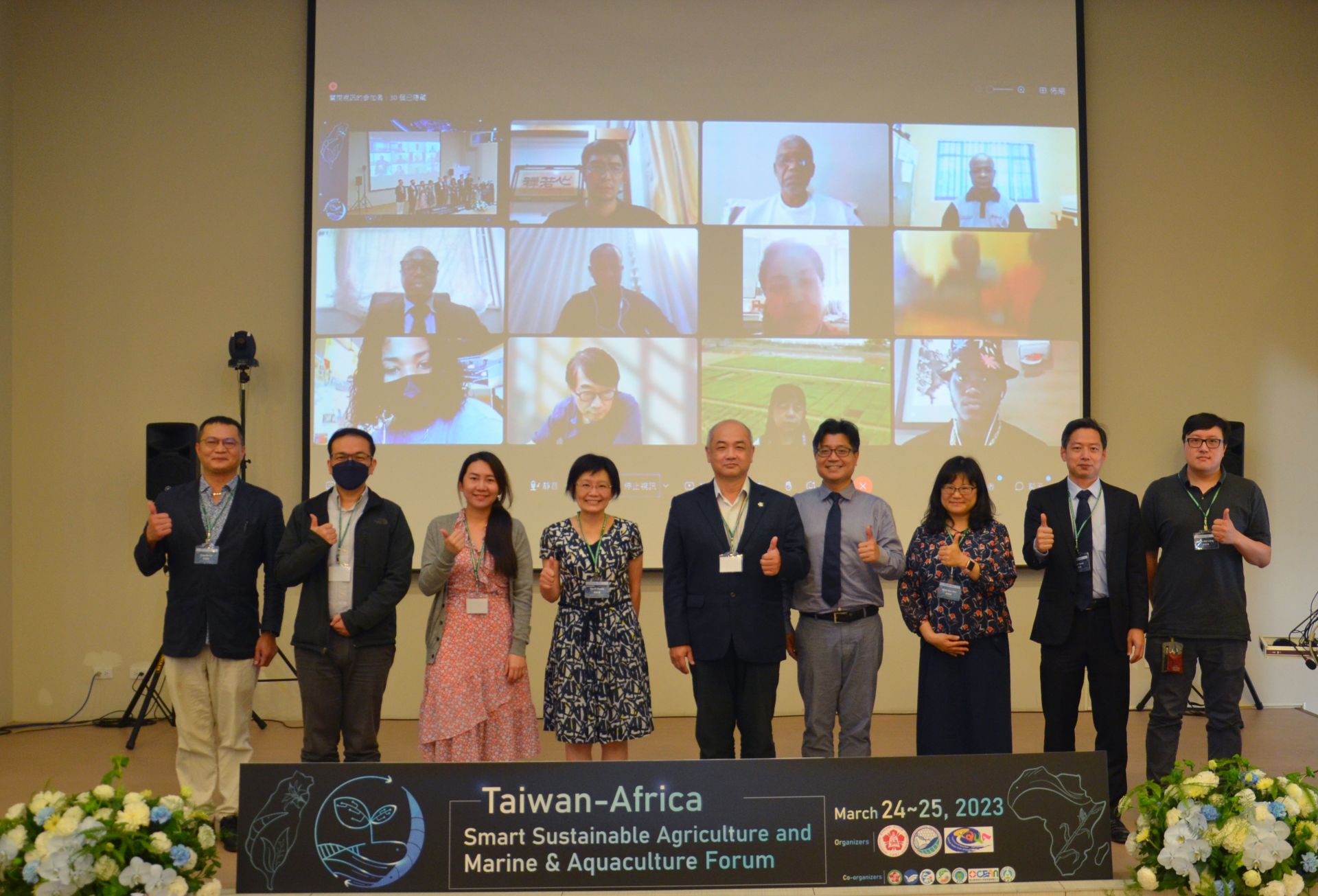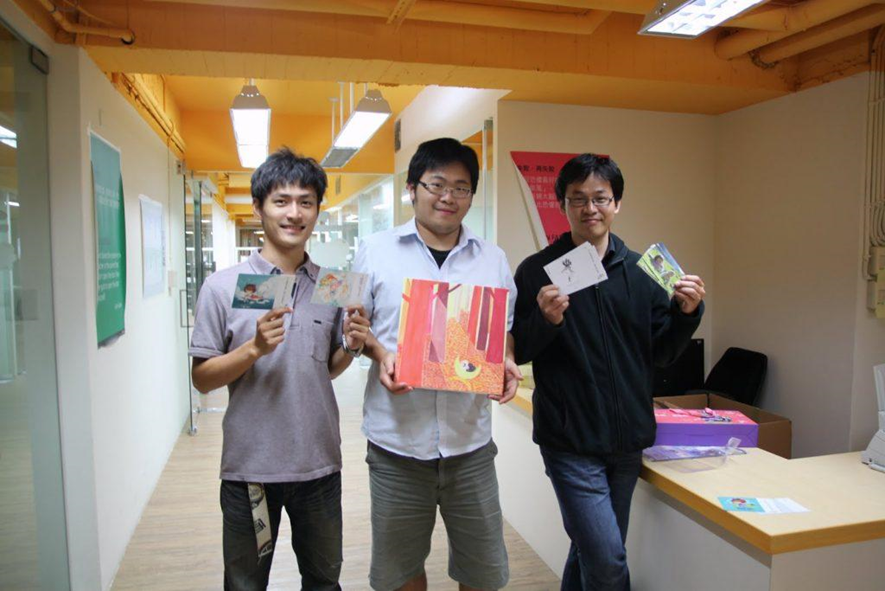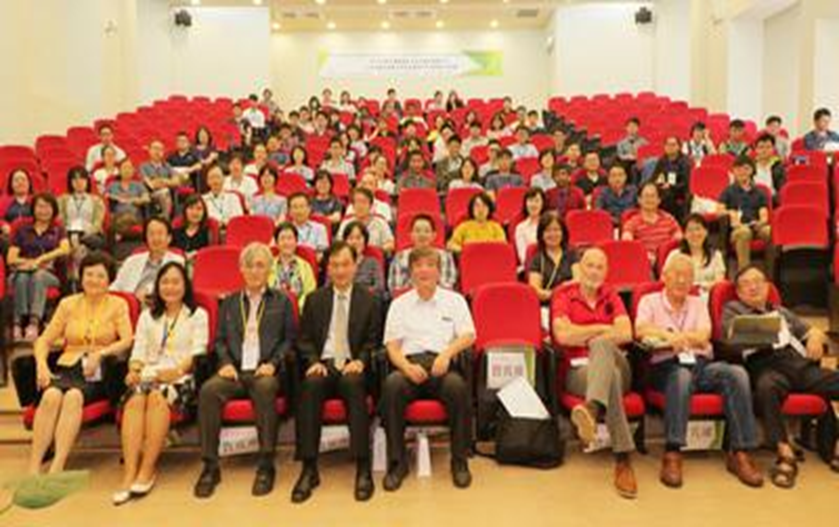Common Good of Farming and Husbandry, Symbiosis of Farming and Nature: NCKU Bears University Responsibility through Local Learning and Local Actions
To encourage farmers to participate in sustainable agriculture, reduce the usage of pesticide and synthetic fertilizers, and decrease the cost of gardening essentials, National Cheng Kung University (NCKU) Research Center for Humanities and Social Science promotes the USR plan “Common Good of Farming and Husbandry, Symbiosis of Farming and Nature”. The center held a meeting for sharing reflections on the usage of photosynthetic bacteria in the Ba Zhi Lin Activity Center located in Guantian District, Tainan City on May 28th, and invited 50 farmers to share their experience on using photosynthetic bacteria in cultivation (Pomelo, guava, asparagus, cherry tomato, dragon fruit, etc.). Yong-Shun Tsai, one of the participants, indicated that the dragon fruits bloomed and were harvested one week earlier than last year without lightning at night with photosynthetic bacteria.
NCKU Research Center for Humanities and Social Science, the Food Industry Research and Development Institute, Tainan City Government, and Dawu Mountain Charity collaborated to arrange the “photosynthetic bacteria training class”. The participants are mainly from Tainan City. The farmer, Jhen-Ming Gao, shared his experience of cultivating cherry tomatoes with photosynthetic bacteria. He mentioned that the cherry tomatoes lacked iron and grew with low speed before adopting photosynthetic bacteria in December. Nevertheless, after using photosynthetic bacteria for a week, the circumstance of the lack of iron in the leaves of the new-grown cherry tomatoes has apparently improved. Min-Xing Liu, a fish farmer, mentioned that he recognized that the usage of photosynthetic bacteria helps improve water quality in meretrix cultivation tanks, and can thus reduce the cost of electricity fee. Photosynthetic bacteria is not only environmentally friendly, but assists farmers in saving costs, which is the best of both worlds.
Plenty of students from NCKU participated in the activity to assist in administrative works, and can further understand sustainable agriculture and the circumstances that the farmers face during working from interacting with farmers, which enlightens those who are highly interested in industries regarding agriculture and food, broaden their horizons and connections in agriculture field.
The associate professor in NCKU Research Center for Humanities and Social Science, I-Ming Chien, indicated that the purpose of “Common Good of Farming and Husbandry, Symbiosis of Farming and Nature” is to help the farmers to establish learning platform for microorganism like photosynthetic bacteria, which lower the standard of adopting sustainable agriculture for farmers; in the meantime, the activity leads the students to enter the villages and create the opportunity for rural rejuvenation.
Dr. Lai-Ling Liao from the Food Industry Research and Development Institute indicated that photosynthetic bacteria is the common bacterial flora in nature, and is harmless to humans. The bacteria can improve the growth of plants, possesses dissolved organic phosphorus (DOP) and Nitrogen fixation abilities, and therefore enable farmers to reduce pesticide and chemical fertilizer consumption. As a result, photosynthetic bacteria is an irreplaceable tool for the promotion of sustainable agriculture.
NCKU Research Center for Humanities and Social Science sincerely appreciates the support from Tainan City Government in 2019, the center can therefore arrange "photosynthetic bacteria training class”, assist sustainable agriculture with practical actions, and promote the development of the platform of sustainable agriculture for farmers. In the meantime, the center expects to urge more students from NCKU to understand sustainable agriculture from USR courses, and thus become willing to enter the village to spare efforts for the land.
To encourage farmers to participate in sustainable agriculture, reduce the usage of pesticide and synthetic fertilizers, and decrease the cost of gardening essentials, National Cheng Kung University (NCKU) Research Center for Humanities and Social Science promotes the USR plan “Common Good of Farming and Husbandry, Symbiosis of Farming and Nature”. The center held a meeting for sharing reflections on the usage of photosynthetic bacteria in the Ba Zhi Lin Activity Center located in Guantian District, Tainan City on May 28th, and invited 50 farmers to share their experience on using photosynthetic bacteria in cultivation (Pomelo, guava, asparagus, cherry tomato, dragon fruit, etc.). Yong-Shun Tsai, one of the participants, indicated that the dragon fruits bloomed and were harvested one week earlier than last year without lightning at night with photosynthetic bacteria.
NCKU Research Center for Humanities and Social Science, the Food Industry Research and Development Institute, Tainan City Government, and Dawu Mountain Charity collaborated to arrange the “photosynthetic bacteria training class”. The participants are mainly from Tainan City. The farmer, Jhen-Ming Gao, shared his experience of cultivating cherry tomatoes with photosynthetic bacteria. He mentioned that the cherry tomatoes lacked iron and grew with low speed before adopting photosynthetic bacteria in December. Nevertheless, after using photosynthetic bacteria for a week, the circumstance of the lack of iron in the leaves of the new-grown cherry tomatoes has apparently improved. Min-Xing Liu, a fish farmer, mentioned that he recognized that the usage of photosynthetic bacteria helps improve water quality in meretrix cultivation tanks, and can thus reduce the cost of electricity fee. Photosynthetic bacteria is not only environmentally friendly, but assists farmers in saving costs, which is the best of both worlds.
Plenty of students from NCKU participated in the activity to assist in administrative works, and can further understand sustainable agriculture and the circumstances that the farmers face during working from interacting with farmers, which enlightens those who are highly interested in industries regarding agriculture and food, broaden their horizons and connections in agriculture field.
The associate professor in NCKU Research Center for Humanities and Social Science, I-Ming Chien, indicated that the purpose of “Common Good of Farming and Husbandry, Symbiosis of Farming and Nature” is to help the farmers to establish learning platform for microorganism like photosynthetic bacteria, which lower the standard of adopting sustainable agriculture for farmers; in the meantime, the activity leads the students to enter the villages and create the opportunity for rural rejuvenation.
Dr. Lai-Ling Liao from the Food Industry Research and Development Institute indicated that photosynthetic bacteria is the common bacterial flora in nature, and is harmless to humans. The bacteria can improve the growth of plants, possesses dissolved organic phosphorus (DOP) and Nitrogen fixation abilities, and therefore enable farmers to reduce pesticide and chemical fertilizer consumption. As a result, photosynthetic bacteria is an irreplaceable tool for the promotion of sustainable agriculture.
NCKU Research Center for Humanities and Social Science sincerely appreciates the support from Tainan City Government in 2019, the center can therefore arrange "photosynthetic bacteria training class”, assist sustainable agriculture with practical actions, and promote the development of the platform of sustainable agriculture for farmers. In the meantime, the center expects to urge more students from NCKU to understand sustainable agriculture from USR courses, and thus become willing to enter the village to spare efforts for the land.
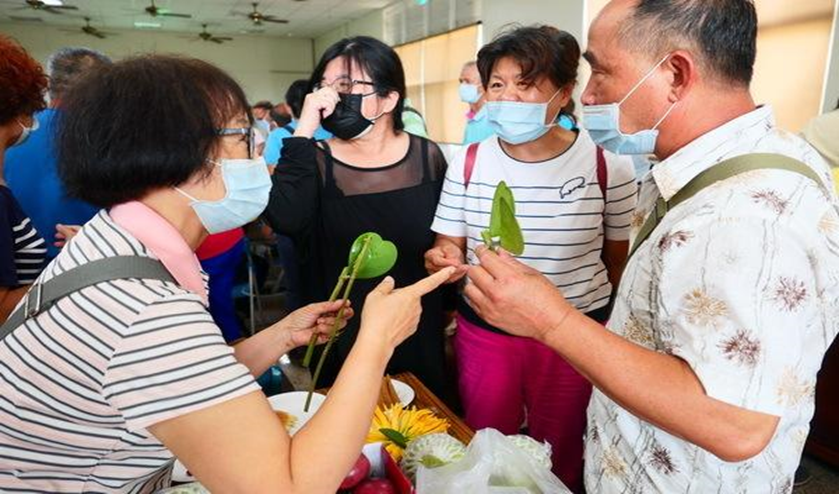
"Sharing Session of Using Photosynthetic Bacteria" held by National Cheng Kung University (NCKU) Research Center for Humanities and Social Science.
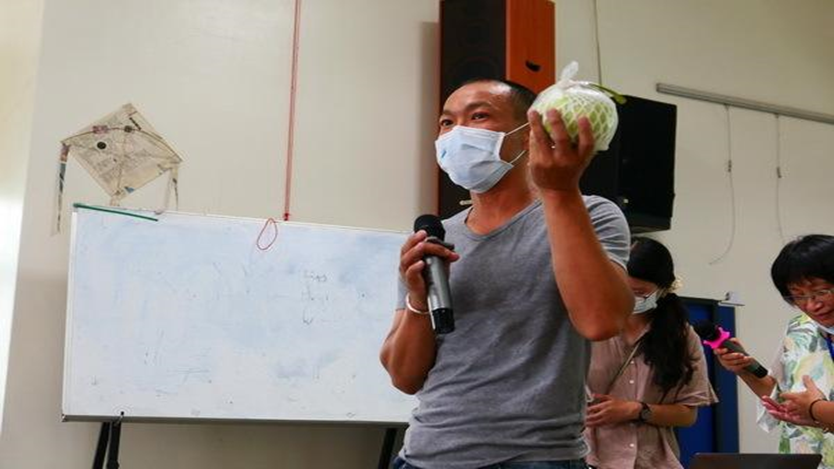
Farmers shared their experience of using photosynthetic bacteria enthusiastically.



